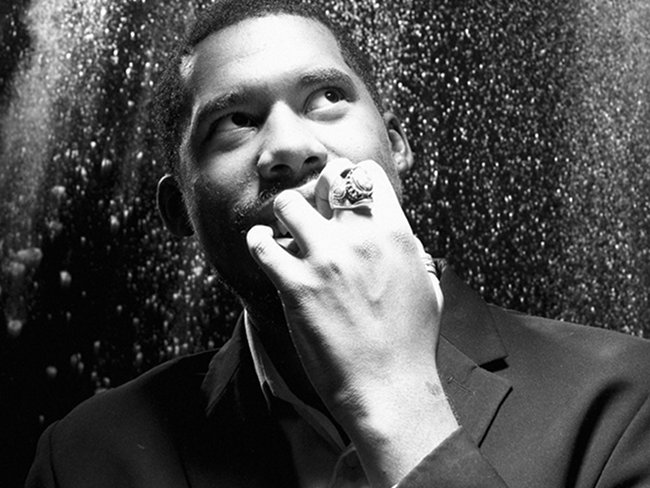In Analogs, we’ll be taking a look at two records that share some interesting parallels to an album out that week. Whether it be an album from 50 years back that bears some quiet influence, or an under-appreciated record from last week, if you like the record in question, you’re sure to like its Analogs.
This week we’re looking at analogs to Flying Lotus’ Until The Quiet Comes. Be sure to check out our review.
Weather Report – Heavy Weather
Steven Ellison has a jazz heritage, and the application of his jazz sensibilities to the construction of electronic music has resulted in my favorite album of the year. I have often struggled to fit Flying Lotus into a single genre, as it seems at times to span both hip-hop and electronica, yet at both times they bear traces of what is unmistakably the mark of a jazz musician. The same can be said of Weather Report’s 1977 classic Heavy Weather, though the elements that inform Joe Zawinul and Wayne Shorter’s brand of jazz are the prevailing rock and pop tropes of their time.
The commercial success of “Birdland” served as a testament to how seamlessly the band was able to transmute rock and pop music into a form still recognizable as but altogether dissimilar from them. “A Remark You Made,” in particular, morphs surreptitiously from a cheesy, synthy, soft-rock ballad to a jazz nocturne, like a picture slowly coming into focus. If you’d prefer more apparent sonic comparisons, the beginning of “All In” has a distinct rhythmic parallel in the stuttering drumbeat of “Havona.” The chords of “The Nightcaller” dances around multiple tonal focal points with ease, as does “Harlequin.” Where Flying Lotus has Thundercat to provide killer basslines, Weather Report has Jaco Pastorius, whose composition “Teen Town” showcases the profound bass skill that underlies much of Heavy Weather.
Both FlyLo and Weather Report have been attributed the moniker of “Jazz Fusion,” which in the case of these artists not so much a fusion as an infusion. Familiar, genre-specific structures are imbued with the personality and unpredictability of jazz music, rendering them incongruent to either genre alone. Until the Quiet Comes and Heavy Weather, though of two different times and fusing their jazz ideas with two different schools of music, thrive on the incongruities they create with their elastic genre-bending, and are all the better for it.
—Harrison Suits Baer
Shlohmo – Bad Vibes

Shlohmo’s sophomore full-length, Bad Vibes, is pretty different from Until The Quiet Comes, but they share similar stands of DNA rooted in Los Angeles beat music and Warp-esque sensibilities. They also make use of a wide variety of analog sources — Bad Vibes perhaps not quite to the extent, subtlety, music worlds-blurring, or groundbreaking ends of UTQC, but the record has stuck around for similar reasons. The pallet is as different as you can get too. Bad Vibes is full of rusty acoustic guitar plucks, distorted echo chamber vocals, there’s a harmonica, old broken keys, and box-of-nails percussion like Shlohmo dug around an old tin-roofed shed to find inspiration. Its sense of melody, which knows when to go small and when to go big gives it an extra emotional push that’s just not found in most hip-hop-based stuff and its organic atmospheres help it step into a more tangible, meaningful space as well. If you’re looking for Flying Lotus’ contemporaries — Flying Lotus on UTQC — you’re not going to find them, they don’t exist, but the man himself has helped to set in motion a whole universe of electronic music with his own sophomore LP and post-Dilla manifesto, Los Angeles, acting as ground zero. Shlohmo has similarly built from that record to construct a sound that’s uniquely his own resulting in one of the most gorgeous and significant electronic full-lengths in the last couple years.
–Will Ryan


